


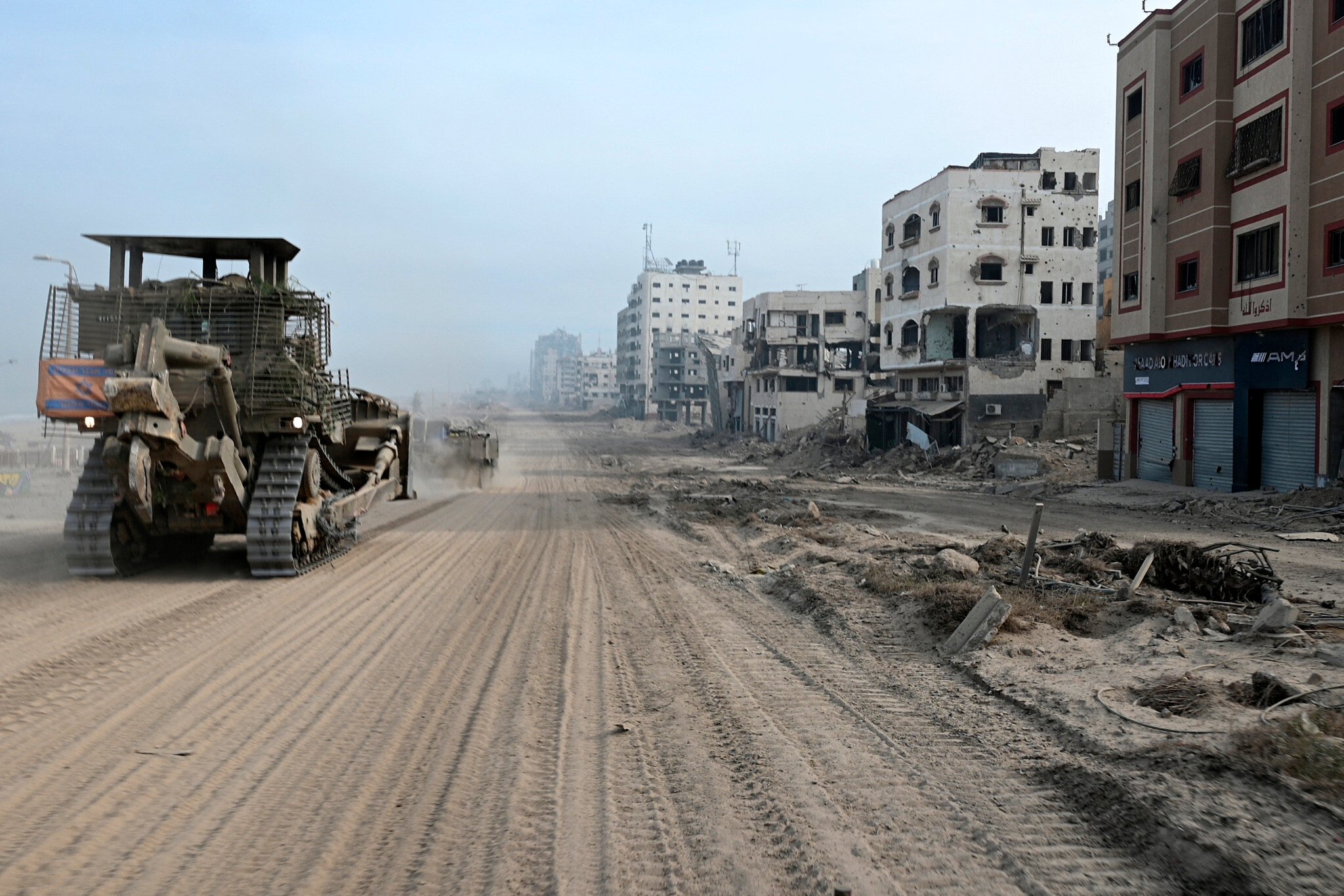
With Israel’s war against the Hamas terror group in Gaza in its 21st month, a quiet but dangerous reality has taken root: Civilian contractors, hired by the Defense Ministry, are regularly carrying out demolition, engineering and logistical work deep inside the war zone. Though officially noncombatants, many now operate on or near the front lines, assuming risks normally reserved for soldiers in uniform.
Those risks became tragically clear in late May, when 19-year-old David Libi, a civilian contractor, was killed by a bomb while operating engineering equipment during IDF operations in northern Gaza.
According to the military, Libi was working in the Jabalia area when the bomb detonated. He was the third Defense Ministry contractor killed in Gaza since the war began.
Libi worked for Libi Construction and Infrastructure, a firm recently sanctioned by the United Kingdom for supporting illegal West Bank outposts, and owned by his father, Harel Libi.
The UK Foreign Office accused the company of providing “logistical and financial support” for settlement expansion that led to the forced displacement of Palestinians.
Harel Libi, a resident of the illegal West Bank outpost of Adei Ad, was also sanctioned for “acts of aggression and violence against Palestinian individuals,” as were other far-right activists involved in similar activity.
According to watchdog group Kerem Navot, Libi Construction has operated extensively in unauthorized areas of the West Bank, including building infrastructure for illegal outposts like Coco’s Farm, which was also sanctioned. Palestinian groups have accused Libi’s employees of harassing local herders and preventing grazing.
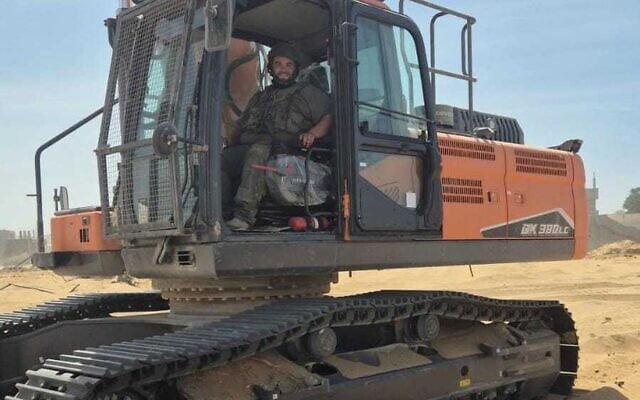
Despite the sanctions and allegations, Libi Construction continued to operate under Defense Ministry contracts and remained active in Gaza. The ministry declined to comment on its continued collaboration with the company or on the broader role of civilian contractors in the Strip. Libi Construction did not immediately respond to a request for comment.
The Defense Ministry has hired numerous civilians like David Libi to take on demolition and logistical tasks, thereby freeing up IDF units for combat roles. But the use of civilian contractors in active war zones raises serious questions about oversight, legality, and the true nature of these workers’ status.
Dr. Ori Swed, director of the Texas Security Center at Texas Tech University, told The Times of Israel that while outsourcing in military contexts is not new, its scope and visibility have grown significantly since the 1990s.
He pointed to “high-profile cases” like Blackwater, the American private military contractor whose controversial role in the Iraq War brought international attention to the use of civilian contractors in active combat zones.

In 2007, Blackwater contractors escorting a US diplomatic convoy opened fire in Baghdad’s Nisour Square, killing 17 Iraqi civilians. The massacre led Iraq to revoke the company’s license to operate, though the US later reinstated it temporarily.
The incident prompted criminal convictions, FBI investigations, and widespread scrutiny of legal accountability for contractors. Erik Prince, Blackwater’s founder, has long denied wrongdoing, accusing the US government of targeting the company with what he called “baseless” claims — including allegations of negligence, racial discrimination, murder, and weapons smuggling.
Swed emphasized that incidents like that of Blackwater do not reflect the private military industry as a whole, describing it as a “tragic, extreme, and deeply problematic case.”
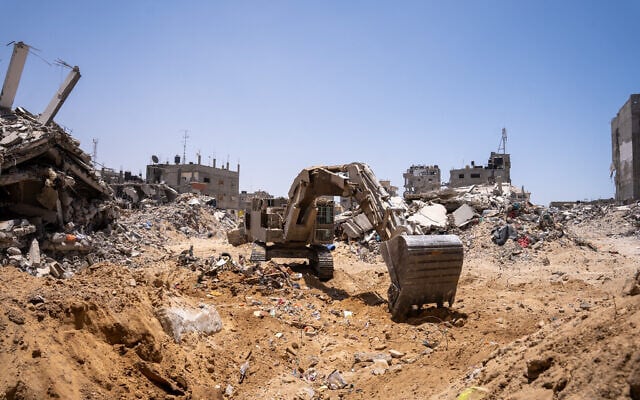
“Military operations aren’t just about the shooting part,” Swed said. “They involve construction, logistics, transportation, communications, even healthcare. When a state military doesn’t have all the resources or specialization in-house — or simply needs to expand capacity — it turns to the private sector.”
In Gaza, these civilian contractors have been used to construct and demolish roads, clear rubble, and modify terrain to facilitate troop movements and control territory — actions Swed describes as key to modern military engineering.
Other private actors, like the US- and Israel-backed Gaza Humanitarian Foundation, have also entered the field, distributing food aid under Defense Ministry coordination. Since it launched in late May, the GHF said it has provided over 46 million meals to Palestinian civilians, though its operations have been marred by reports of near-daily deadly shootings of Palestinians attempting to reach distribution points across IDF lines.
According to CivilEng, a private organization representing construction professionals in Israel, to take part in operations, companies must first register with the government’s Construction Center under the Technology and Logistics Directorate of the IDF, as well as with the Registrar of Contractors.
Only then can they apply to become recognized providers of government work and bid on Defense Ministry tenders.
The ministry’s Department of Engineering and Construction, according to its own website, is staffed by a mix of IDF officers and civilian engineers. It oversees the planning and execution of military infrastructure, including much of the work currently being carried out in Gaza.
Still, transparency around these operations is minimal. Swed notes that security concerns often prevent disclosure of information to the public.
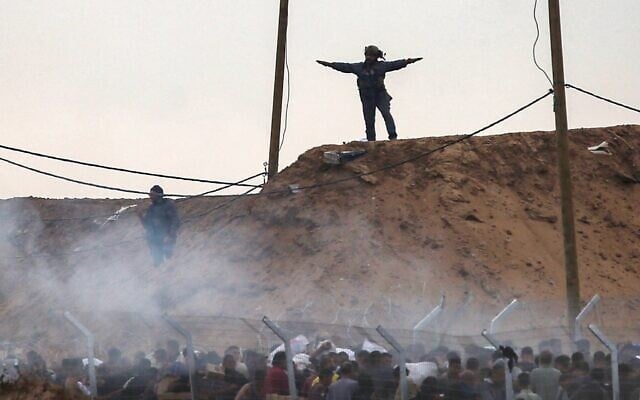
“This entire field is shrouded in secrecy by design,” he said. “Anything related to military operations — especially in conflict zones — involves layers of security. Contractors are no exception. Disclosing identities, contracts, even logistics, can put people’s lives at risk.”
Despite operating in war zones, contractors like Libi do not receive the same public recognition or legal protection as soldiers.
“When contractors die, it doesn’t register with the public the same way a soldier’s death does,” Swed said. “There’s a perception that [contractors] are there for money and that they accepted the risk voluntarily.”
Unlike IDF soldiers, civilian contractors are not considered combatants under international law and therefore are not entitled to prisoner-of-war status if captured.
They also operate under private contracts rather than formal military command, leaving oversight fragmented and accountability less defined. Contractors working in conflict zones are not covered by the institutional protections soldiers receive — such as pensions, long-term benefits, or legal aid through the military justice system — and must instead rely on basic civilian labor laws.
“The actors for these security companies are not soldiers…but at the same time, they’re not non-combatants,” Swed explained.
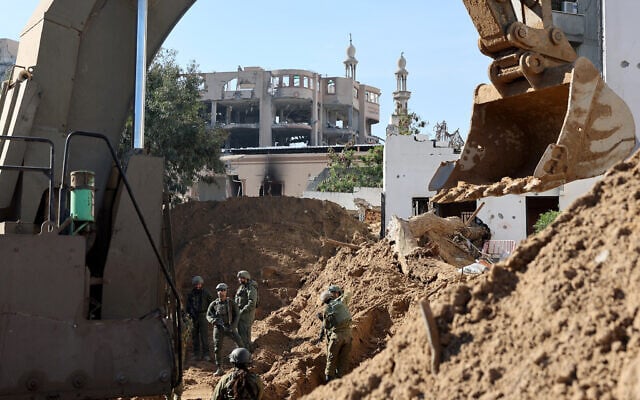
He pointed to the broader political utility of outsourcing.
“It allows the state to reduce the political pressure that comes with military casualties or unpopular drafts,” he said, adding that “sometimes, it’s simply more cost-effective and flexible than deploying military personnel.”
However, that flexibility can come at a human cost.
“This industry has had major legal issues, mostly related to labor rights and worker protections,” Swed said. “When you’re operating in dangerous areas, far from oversight, the risk of exploitation increases.”

Though exact numbers are not publicly available, the presence of Israeli civilian contractors in Gaza appears to be growing. Many reportedly come from West Bank settlements, raising further political questions about motivation, ideology, and government hiring preferences — though Swed cautions against speculation without hard evidence.
“It’s possible that [the current] government prefers to hire companies whose bids come from individuals with a particular motivation system,” he acknowledged, but he maintained that it is impossible to determine the true reasoning without more information.
What is clear, however, is that the line between civilian and soldier in Israel’s war effort is becoming increasingly blurred. For contractors like Libi, the consequences are tragically clear — operating as civilians in a combat zone and taking on the dangers of war, without an official status or protection.
